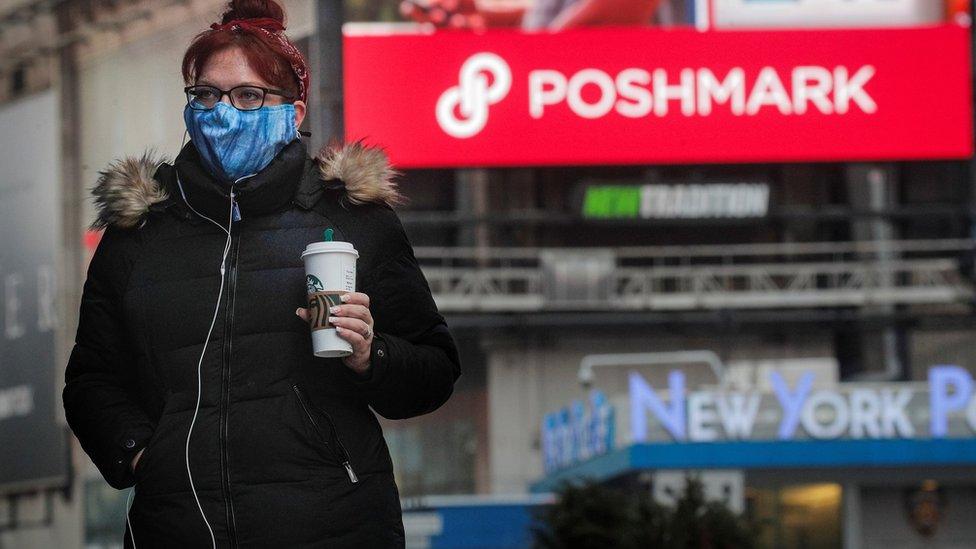Poshmark turns used clothes into $7.1bn stock listing
- Published

Poshmark priced its shares at $42 each but they started trading at $97.5
Second-hand shopping site Poshmark hit a value of more than $7.1bn (£5.2bn) in its first day of trading, as investor demand sent its shares soaring.
The popularity of resale platforms is expected to rise, as shoppers grow more budget and environmentally conscious.
Poshmark also got a boost from the surge in online shopping due to the pandemic.
The firm, which raised about $277m in the Nasdaq listing, reported its first-ever quarterly profit this spring.
Its first day of stock market trading comes amid booming investor appetite for share offerings.
Holiday booking site Airbnb and food delivery firm DoorDash were among a wave of companies that listed last year.
Investors mobbed their initial public offerings, prompting share price and market value to surge far higher than expected.
Poshmark saw a similar phenomenon. It priced shares at $42 each, well above the initial target, and they started trading at $97.60 each, giving a value of about $7.1bn.
What is Poshmark?
Founded in California in 2011, Poshmark has been backed by celebrities including Hollywood actor Ashton Kutcher and celebrity stylist-turned-designer Rachel Zoe.
Focused on used clothing and accessories, it provides a platform like eBay or Etsy that links buyers and sellers, mixing features from social media. It makes money by taking a 20% cut of each sale.
In filings with regulators, external last year, Poshmark said more than 30 million people had logged into the site over the last 12 months, with more than 6 million people buying at least one item.

Over the 12 months to 30 September, it reported a slim $6.2m profit, from revenue of almost $250m.
But the firm, which is currently active in the US and Canada, warned investors: "We cannot assure you that we will maintain our profitability in future periods, and we may incur significant losses in future periods".
Poshmark is not the first company to test market appetite for resale sites.
In the US, TheRealReal, which focuses on luxury goods, debuted last year, and other second-hand shopping sites, including rival ThredUp, have also said they are planning share offerings.
Related topics
- Published11 December 2020

- Published10 December 2020
